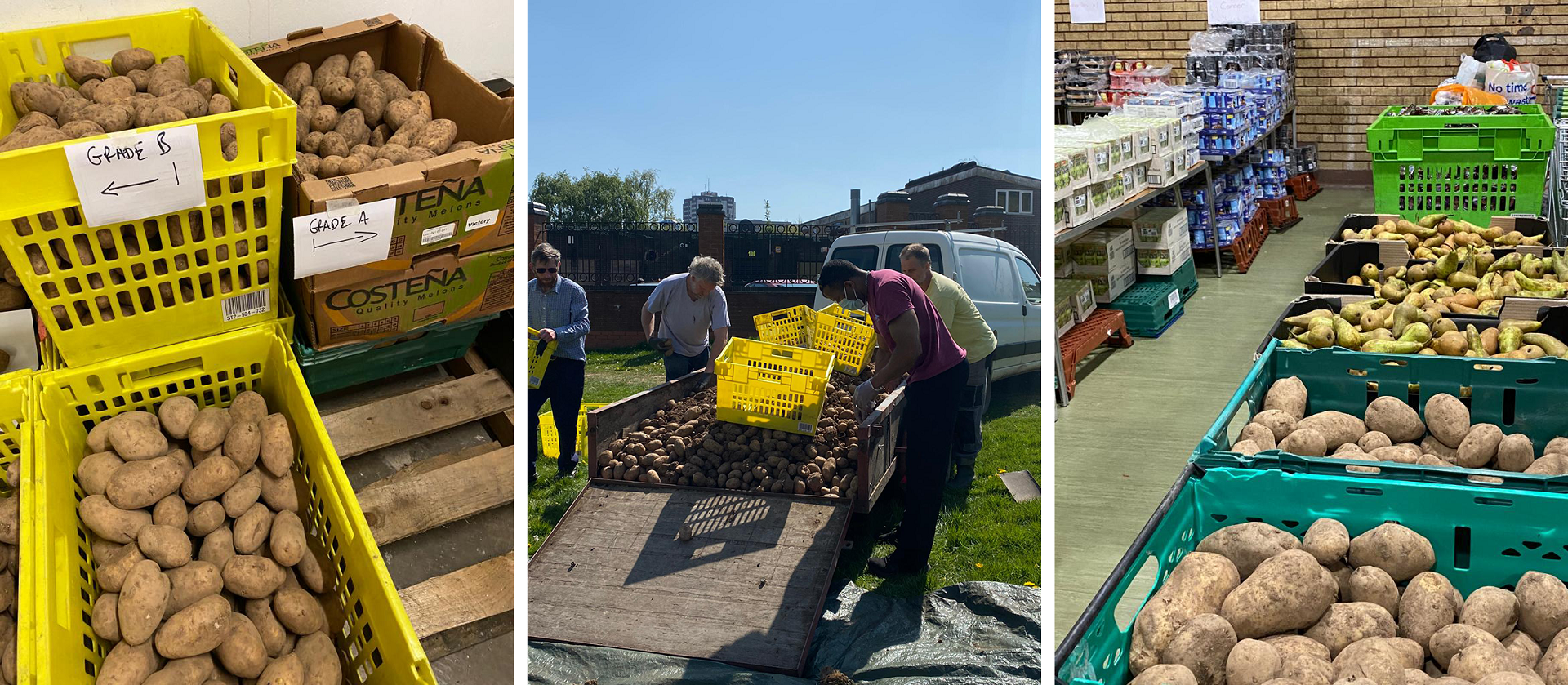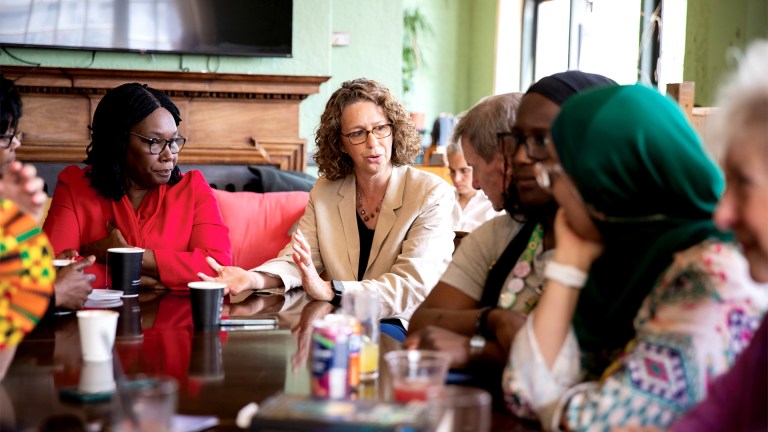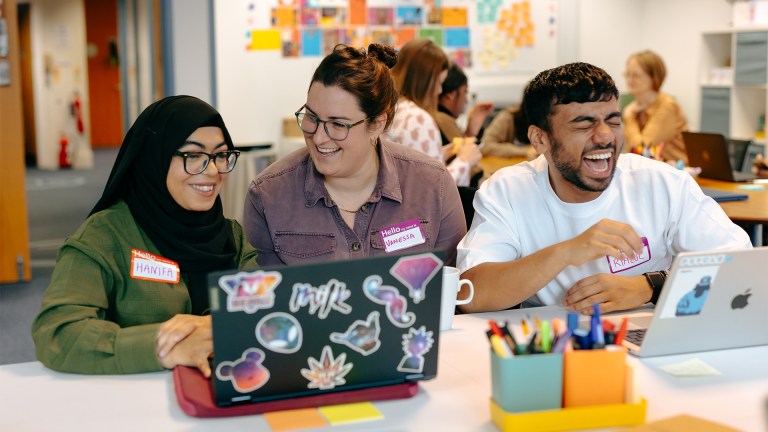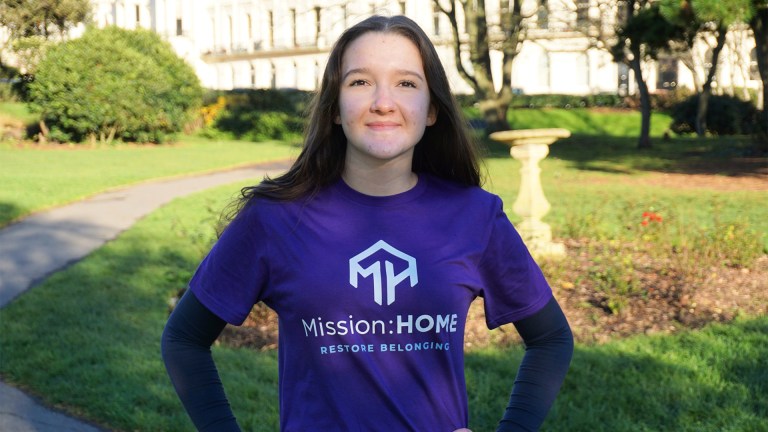Since launching a few weeks ago, the Potato Project has distributed seven tonnes of potatoes with volunteers taking delivery, sorting and peeling the veg. The operation has now expanded to help a second farmer in Warwickshire who is also stuck with 10 tonnes of spuds in the ground.
Getting potatoes into the emergency food network is also a necessity. Foodbanks have faced increased demand as the Covid-19 lockdown has pushed more people into poverty – the nation’s largest foodbank charity The Trussell Trust has reported 81 per cent more demand.
Kate Smith, Chair of Slow Food Birmingham, told The Big Issue: “It takes a very long-term to set up contracts to supply supermarkets so the farmers who have always supplied restaurants can’t quickly turnaround and supply supermarkets. That’s why we’re finding it hard to find food sometimes and ending up with small producers who are left with products that they can’t sell to people.
“It’s a big part of what Slow Food believes that everybody should be paid a fair price for their food, when you hear of farmers getting paid 7p for a bag of carrots that’s when you also hear of farmers having to go to foodbanks. In this case we saw that we had the ability to fix the problem and at the same time let people in the city help people in the country and let people in the country help people in the city.
“While many producers are struggling with supply chains at the moment, helping to add potatoes into the Covid-19 food response makes sense as it’s such a versatile ingredient and easy for people to cook. There is a huge demand for carbohydrates for emergency food bags across the city. The Potato Project campaign helps farmers retain their livelihoods, feeds the people of the city and helps those struggling during this time of crisis.”
We saw that we had the ability to fix the problem and at the same time let people in the city help people in the country and let people in the country help people in the city
Sam Ewell, co-director of Eat Make Play – a community benefit society founded by local residents, makers, cooks and creatives – added: “The Potato Project is creating a direct line from farm to fork. As we move into recovery post-COVID-19, we want to maintain and solidify the bridge between local farmers and people in the city.”
Slow Food is a global food movement that operates on a local level in more than 150 countries. Their Birmingham project was set up two and a half years ago, focusing on food sustainability and biodiversity.
One of their other food projects, the Jewellery Quarter Food Hub, which aims to act as a ‘farm shop in the city’ supplying local and seasonal food direct from producers. Orders have skyrocketed since the coronavirus lockdown – up 350 per cent. They are planning to open additional food hubs across the city as the demand for locally sourced food has increased.
The Big Issue has been amplifying stories of good people doing good things throughout the Covid-19 lockdown. Head here for more.
Image: Slow Food Birmingham









